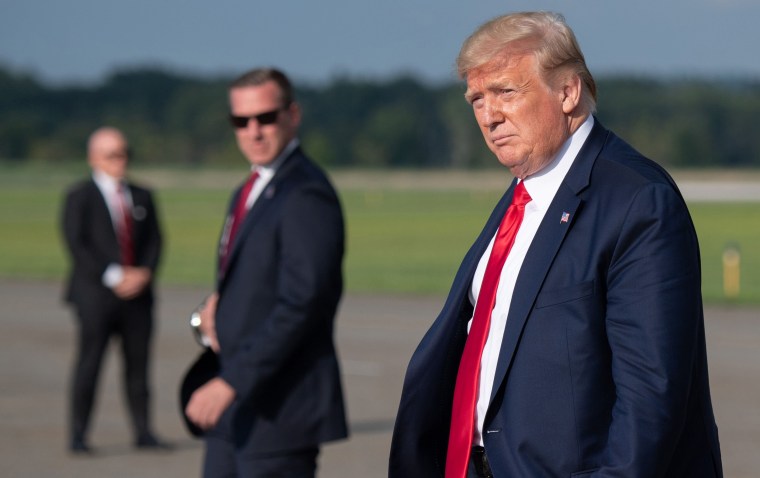President Donald Trump renewed his attack on the Federal Reserve on Monday, berating his appointee, Fed Chairman Jerome Powell, for a "horrendous lack of vision" and calling for the central bank to slash rates by one full percentage point.
"The Fed Rate, over a fairly short period of time, should be reduced by at least 100 basis points, with perhaps some quantitative easing as well. If that happened, our Economy would be even better, and the World Economy would be greatly and quickly enhanced — good for everyone!" Trump tweeted on Monday morning.
The president's comments are the latest in a long line of attacks on the Fed — an independent agency that, like other central banks around the world, is insulated from short-term political interests — and its key decision-makers, several of whom are his own appointees.
"Our Economy is very strong, despite the horrendous lack of vision by Jay Powell and the Fed, but the Democrats are trying to 'will' the Economy to be bad for purposes of the 2020 Election. Very Selfish!" the president wrote.
Trump has expressed increasing frustration with the Fed, which has raised rates seven times during his presidency. With the economy as the central focus of his re-election campaign for 2020, Trump is keen to keep the economy on an even keel.
Despite a robust stock market and the lowest unemployment in almost half a century, Trump insists "the stock market would be 10,000 points higher" and the economy would “go up like a rocket” if the Fed were to slice rates by one percent — a level that has traditionally only been associated with extreme economic uncertainty and recession.
Before the last two economic downturns, in 2001 and 2007, the Fed raised rates both times and did not lower rates until just before the recession hit a year later.
At its most recent meeting, in July, the Fed cut its benchmark borrowing rate by 0.25 percentage points, a move that Powell noted was not due to any "political considerations" but rather the result of mounting economic metrics that indicate a global slowdown in growth that would eventually hit the U.S.
Financial markets are expecting at least one more rate cut this year, possibly when the Fed meets next, on Sept. 17-18. Some members of the Federal Open Market Committee, which votes on rate changes, are also pushing for a second rate cut, likely in December.

